Students Speak Out after Confiscation of the Universidad Centroamericana Nicaragua
BY HARRISON HANVEY | October 13, 2023
“When I realized that government officials were there, that they had closed the university, that they were even taking the name of the university down [from the front gates], that was a gut punch,” says Luis*, a fourth-year business student at the Universidad Centroamericana (UCA) in Managua, Nicaragua. “It really affected me … because, for me, school had always come first. My university was my everything.”
This summer, Luis was a mere two semesters away from graduating. Now, his future is up in the air.
On August 15, the Nicaraguan government accused the UCA of being a “center of terrorism,” among other charges, and announced that the university would be confiscated and turned over to the State. The next day, officials arrived to remove its name from the front gates. Within the week, the Jesuits who lived on an adjacent property were expelled from their house, not even permitted to take their most basic belongings.
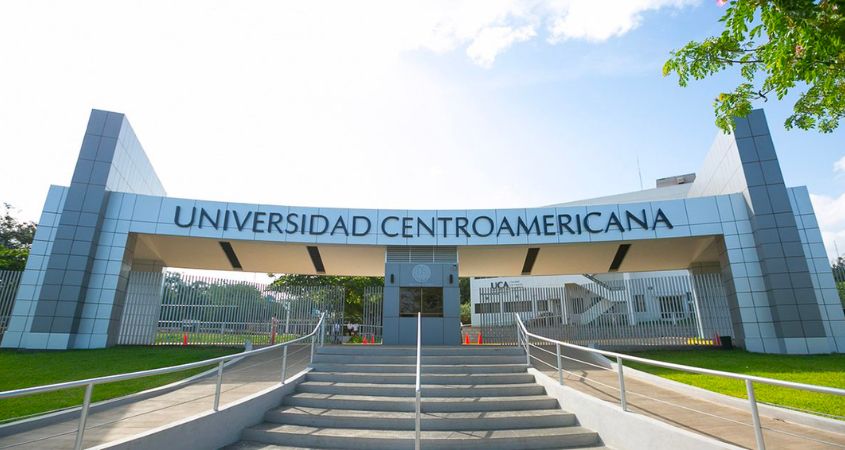
Image: UCA Facebook page, via Jesuit Conference of Canada and the United States
“The university never was a center of terrorism. Our only weapons were our books and our studies,” Luis says.
Trumped up terrorism charges have been one of the most egregious excuses the government of Daniel Ortega and Rosario Murillo have given for the confiscation of the UCA — the 27th university they have seized control of in the past several years, along with over 3000 non-governmental organizations.
The last major bastion of free speech in the country, the UCA has been in the crosshairs of the Nicaraguan government since 2018 when it opened its gates to peaceful protesters seeking refuge from the attacks of government-backed parapolice. Precisely because the university has always been an independent voice in the country, a space where students and staff could express themselves as their conscience dictated, it came under attack.
“Every person there was free to have their own ideas, and because your thoughts are your own, everyone had to respect that,” says Enrique, a friend of Luis who also was on the verge of graduating from the UCA.
“Other universities are not the same,” Enrique explains. “In the public universities, one can’t speak out against the government because you can get expelled.” Or worse: “When they closed the UCA, a young woman riding the bus spoke against the government and someone reported her. She got thrown in jail … and we don’t know if she’s still there or not.”
It’s a loss of immeasurable proportions for this small Central American country, as the UCA provided quality education and hope to young people desiring to make a difference in their homeland. “It had a great campus, great professors, and they taught you values beyond just what you learned in class,” Luis says.
As an upperclassman, Enrique participated in a tutoring program for first year students. “I saw the importance of helping others, and it also felt good to help,” he says. “[At the UCA] I developed this love of service and collaboration. … As the Jesuits say, ‘In all things, to love and serve.’”
The seizure of the university hit Enrique hard. “Some of us didn’t want to accept it,” he says. “A few students went to the UCA and saw their professors removing their things. That week was quite depressing and affected me a lot emotionally.”
When I asked him what his dreams for the future were, he replied, “Now that’s a question I like! Since I started university classes, I’ve been forming my life’s plan: to be a university graduate, to get a good job … to have my own house, to have a car … but first of all, to support my family. That is what comes first for me. If I can help my family, I will do it.” Enrique’s dreams were ambitious when he began his university career. But with the seizure of the UCA, hope has become harder to find.
It has not been easy for Enrique’s family. As the Nicaraguan economy has worsened in recent years and jobs have grown scarce, his mom had to leave the country to work in Panama. “I haven’t been able to see her since that time,” Enrique says. “Now there are just five of us: my grandparents, my two siblings and me.”
“When they confiscated the university, I thought about leaving too … what can I do?” he continues. “There’s no future in this country, and the majority of my friends have the same idea. Here, they’re suffocating us, and so people try their luck elsewhere. A whole generation is going to abandon the country, and it’s sad because nobody wants to leave their homeland, but our hands are tied.”
The situation in Nicaragua is dire and continues to deteriorate. Over 5000 students from the UCA don’t know when, where or if they will be able to continue their studies. Over 1500 staff members of the UCA are in limbo and without a paycheck. In response, global Jesuit institutions are standing in solidarity.
Jesuit sister universities in El Salvador and Guatemala are creating possibilities for these students to study at their institutions. The Jesuit USA Central and Southern Province has created an Emergency Fund to raise money and help UCA students and staff, especially since the government has frozen many Jesuit bank accounts in Nicaragua. The Association of Jesuit Colleges and Universities, along with many other Jesuit institutions, has condemned the government of Nicaragua and called on it to reverse its actions.
In the meantime, though, Luis and Enrique wait. They pray that one day they will be able to complete their university degree and wonder if they will be able to pursue their dreams in the country that they love.
*Luis and Enrique’s names have been changed to protect their identities.
Harrison Hanvey is the manager of outreach and partnerships for the Jesuit Conference Office of Justice and Ecology. Born and raised in Wichita Falls, Texas, he graduated with a B.S. in Mechanical Engineering from Texas Christian University. Soon after graduation, he moved to Central America to work with vulnerable populations in rural communities. Before joining the Jesuit Conference in 2023, he worked at the Catholic University of America in the Office of Campus Ministry.

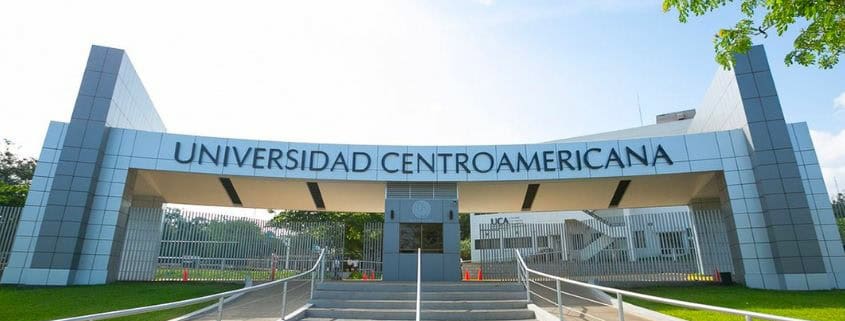
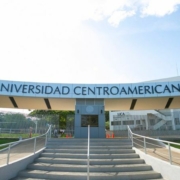
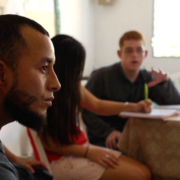
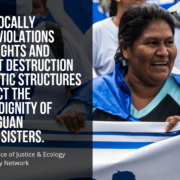

Students – they are the present and the future of Planet Earth, our common home. May each one of them be blessed with a happy present and a bright future.